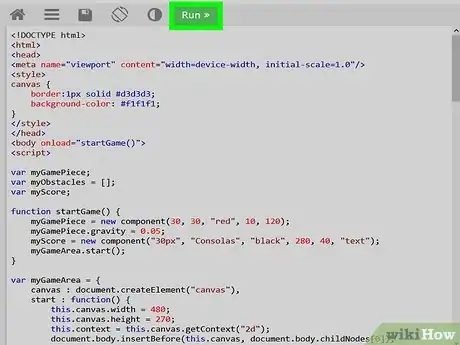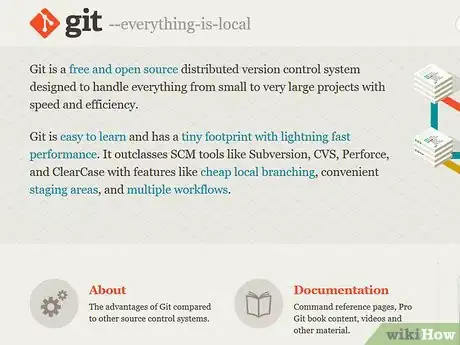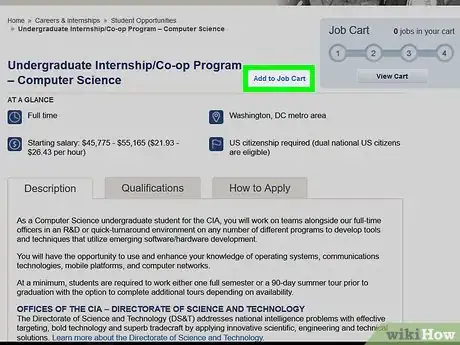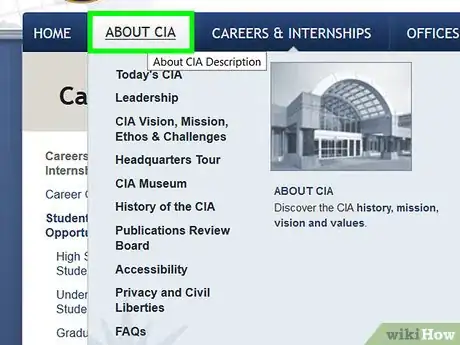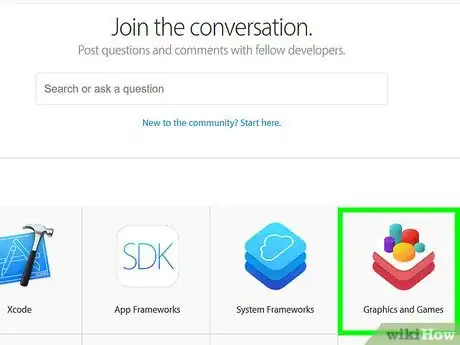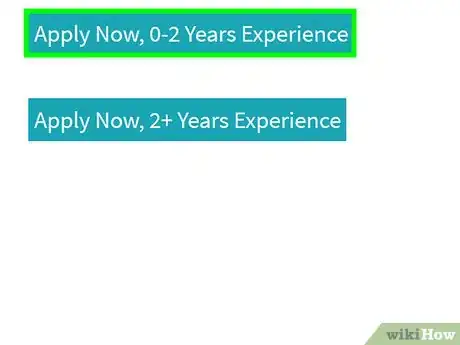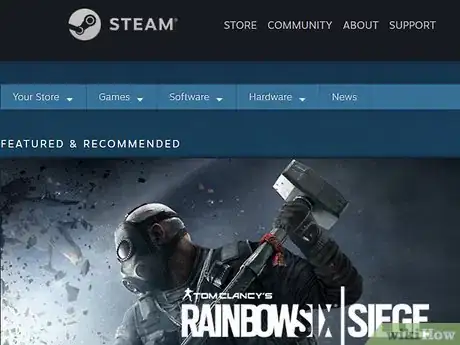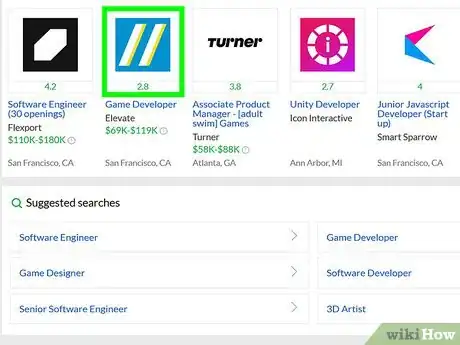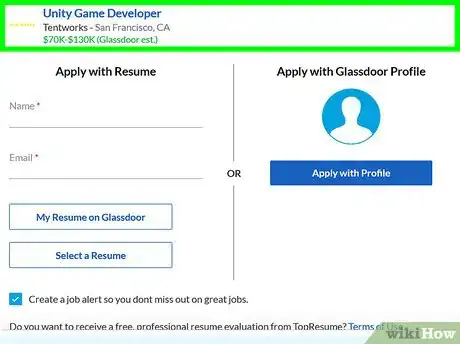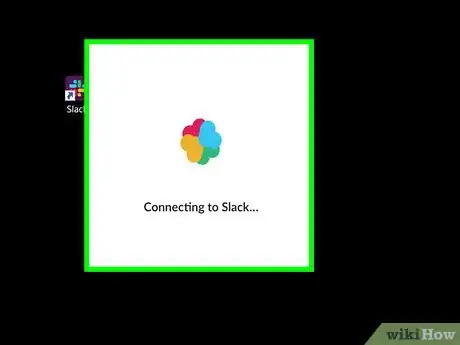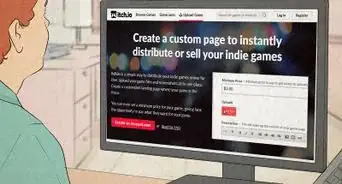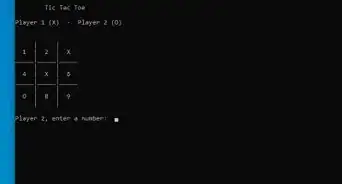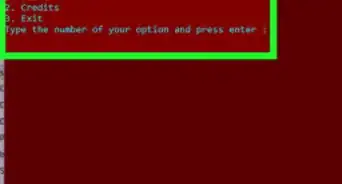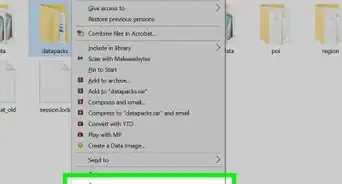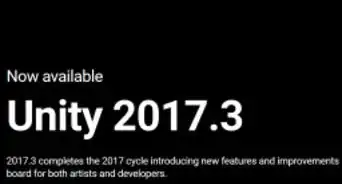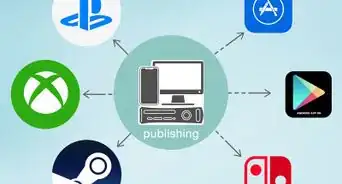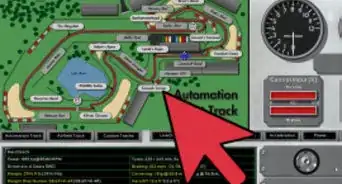This article was co-authored by wikiHow Staff. Our trained team of editors and researchers validate articles for accuracy and comprehensiveness. wikiHow's Content Management Team carefully monitors the work from our editorial staff to ensure that each article is backed by trusted research and meets our high quality standards.
This article has been viewed 81,198 times.
Learn more...
Game programming is a field that keeps on growing by leaps and bounds. However, both the job itself and the path to it can be pretty grueling, so before you embark on it, it’s important to consider whether it’s the right decision for you. If it is, acquiring the necessary skills is a must, since employers are looking for know-how and rarely, if ever, offer on-the-job training. Once you’re equipped with those, patience and perseverance definitely help when you finally go on the job hunt.
Steps
Learning How to Program
-
1Decide between school and self-taught. Expect employers to value technical know-how most of all. So don’t fret if the cost of tuition for higher education is beyond your means, because a degree isn’t strictly necessary to find employment. At the same time, though, recognize that technical proficiency coupled with a degree will probably make you stand out over other candidates.[1]
- Whichever route you choose, put all your emphasis on becoming a proficient programmer. Coasting will only leave you ill-equipped for interviews and the job in question.
-
2Choose your major carefully. If you decide on college, be wary about specialized degrees in game programming. Expect these to cover all of the many different aspects of game programming in a relatively short amount of time. Favor a major in Computer Science instead if you aren’t already proficient in the subject.[2]
- Each aspect of game programming takes a lot of time to master. Studying computer science in depth is more likely to equip you with the necessary skills to tackle each one, even if those skills aren’t directly applied to games during the course of your studies.
- If you do consider a specialized degree, research the people who are teaching it. Professors who understand the concepts of game programming, but who have never worked in the field themselves, may not be the best people to learn from.
Advertisement -
3Learn computer languages. Whether you go to school or teach yourself, aim to master at least one computer language. Focus on C++ to increase your chances of being hired, since this is used the most often in game programming. Other languages that are helpful include:[3]
- Actionscript
- Assembly
- C
- Java
- Objective-C
- Python
- Swift
-
4Design your own game. Remember: the best way to learn how to do something is to actually do it! Once you learn how to code in computer languages, apply your skills. Build a game from the ground up to grow more familiar with the whole process, from start to finish. As you do, you should:[4]
- Keep it basic. Don’t worry about revolutionizing games as you know it. To make an analogy, write a simple short story, not James Joyce’s Ulysses.
- Copy another game if needed. The purpose here is to learn, not to be original. Borrow another game’s concept and build on it if you’re stuck for ideas.
- Do everything yourself. Don’t rely on using outside vector/math libraries. Make all aspects a DIY project in order to increase your proficiency.
- Finish it! You want to grow familiar with the whole process, so follow through all the way to the end. Don’t abandon it just because you’ve already finished your favorite aspect of programming.
-
5Narrow down your focus. Remember: as a professional game developer, you’ll be part of a team tasked with specific aspects. So as you learn to code and build your own games, decide on which areas you want to concentrate on when hired. Once you do, continue to work on personal projects and place more attention to these areas.[5]
- Titles and departments may vary from company to company, but generally programming is divided between: artificial intelligence; animation; audio; build systems; engines; gameplay; networking; physics; rendering; tools; and user interface.
Finding Work
-
1Intern first. Before you apply for a paid position, put in some time with an unpaid one. Search online or through your school for open internships. Gain working experience to bolster your resume when it comes time for the job hunt. Other benefits of an internship include:[6]
- References from industry insiders.
- Extended contacts with people in the field.
- More familiarity with the day-to-day reality of the job.
-
2Have demos ready. Since you don’t have any published games to point to, prepare some examples on your own to submit along with your cover letter and resume. Continue developing personal projects and publish them online in a public Git repository where employers can check them out. Don’t worry about creating whole games. Instead, develop short-and-sweet demos that highlight the specific areas that you want to specialize in.[7]
- Whatever your demo might be, make it perfect. Don’t try to wow interviewers with something overly complex if you can’t get it right. Showcase something simple and flawless instead.
-
3Focus on start-ups at first. This isn’t to say that you shouldn’t apply to positions with established, well-known, successful companies. However, such companies are better situated to offer higher pay and possibly more job security, so expect your competition here to be pretty fierce. Concentrate instead on newer, smaller companies, who, like you, probably have to be less choosy.[8]
- This isn’t a guarantee that you’ll get hired, but you’re less likely to be up against programming rockstars with way more experience than you.
-
4Research each company you apply to. First of all, look for job postings on company websites. Then, after you submit an application, brush up on the company. Read their own published profile, as well as any write-ups from outside sources. Jot down any questions that occur to you so you can pose them in your interview.[9]
- In addition to your technical skills, demonstrating a working knowledge of both the company and the game business at large in your interview should raise your standing among other candidates.[10]
-
5Network. Expect to face a lot of competition for each position. Use each and every personal connection that you have with industry insiders to get a step ahead. Find out about potential openings before they’re posted. Ask your contacts to provide recommendations if they have an inside track with employers. Extend your network by:[11]
- Reaching out through online forums, social media, and professional networks to meet people in the field.
- Staying in frequent contact with current or former classmates and professors.
- Attending conferences and conventions.
-
6Make the most of failed interviews. First of all, keep in mind that with so much competition, you’ll probably face a lot of rejection. Accept it as a given, take it in stride, and learn from it by:[12]
- Reflecting on your interviews, resume, and demos to identify and improve weak points.
- Following up with a thank-you letter or email to interviewers for being considered at all.
- Asking for pointers on areas in which they think you need improvement.
Deciding If This Career is Right for You
-
1Love games. Keep in mind that programming can be a demanding and stressful field to work in, as well as a difficult career to break into. It will require a lot of passion on your part, so take stock of just how much you have. Muster up every last drop that you can in order to succeed.[13]
-
2Expect a long road ahead of you. Value patience and persistence. Plan on taking a few years to acquire the necessary technical know-how, either on your own or through formal education. Then, when you’re ready to enter the workforce, expect a lot of competition for each opening, which means it might take a while to find work. Then, once hired, anticipate having to do a lot of grunt work before advancing to your desired position.[14]
-
3Don’t do it for the money. If you go the formal education route, bear in mind that its cost will probably exceed a game programmer’s average yearly salary by a pretty hefty amount. Also keep in mind that the field lacks job security, which means you may have gaps in your employment. Again, this career definitely requires you to be passionate about it, so do it for the love, not a quick buck.[15]
-
4Anticipate a heavy emphasis on math. Expect most, if not all, aspects of game programming to require strong math skills. If you’re still in school, double down on your math courses. If you’re out of school and need to brush up, definitely do so.[16]
- Obviously, taking math courses is a great way to strengthen your skills. But perhaps even better for the aspiring game developer are the multitude of math games available for download. Kill two birds with one stone and explore games that you may not have otherwise sampled.
-
5Be a team player. Before you enter the field professionally, you should spend a lot of time developing programming skills on your own. But don’t grow too accustomed to working solo. Once hired, expect to become one member of a much larger team. Prioritize clear communication and the ability to accept criticism as two essential skillsets.[17]
-
6Be flexible about location. Depending on where you live, this may not be as much of an issue. But if your hometown isn’t already a booming tech haven, be willing to move to where the work is. Also remember that job stability is pretty iffy, which means you may have to relocate again for a new job.[18]
Community Q&A
-
QuestionHow do I become a good programmer if I am not good at math?
 Community AnswerBecoming a good programmer without being good at math is possible, but someone who is better at math will likely be better at programming. Like programming, math is all about solving logical problems. The good news is, with practice, anyone can become good at math and logic. Just put in the effort to develop your math skills, and you'll be that much better off as a programmer.
Community AnswerBecoming a good programmer without being good at math is possible, but someone who is better at math will likely be better at programming. Like programming, math is all about solving logical problems. The good news is, with practice, anyone can become good at math and logic. Just put in the effort to develop your math skills, and you'll be that much better off as a programmer. -
QuestionHow can I learn to make graphics and code at age 13?
 Community AnswerFor graphics, you can use Blender, and for code use, Unity3D, where you import your graphics made in Blender and code them using Unity. There are a bunch of good tutorials on YouTube.
Community AnswerFor graphics, you can use Blender, and for code use, Unity3D, where you import your graphics made in Blender and code them using Unity. There are a bunch of good tutorials on YouTube. -
QuestionWhat kind of degree do I need to work for a gaming design company?
 Community AnswerDBA in Applied Computer Science or a PhD in Business Administration are just a few. You could search the internet and find out more.
Community AnswerDBA in Applied Computer Science or a PhD in Business Administration are just a few. You could search the internet and find out more.
References
- ↑ http://www.fragmentbuffer.com/how-to-become-a-game-programmer/
- ↑ http://www.fragmentbuffer.com/how-to-become-a-game-programmer/
- ↑ http://www.careeraddict.com/develop-a-career-as-a-game-programmer-or-designer
- ↑ http://www.fragmentbuffer.com/how-to-become-a-game-programmer/
- ↑ http://www.fragmentbuffer.com/how-to-become-a-game-programmer/
- ↑ http://www.animationcareerreview.com/articles/so-you-want-be-game-developer-38-critical-pieces-advice-industry-insiders-consider-you-try-
- ↑ http://www.fragmentbuffer.com/how-to-become-a-game-programmer/
- ↑ http://www.careeraddict.com/develop-a-career-as-a-game-programmer-or-designer
- ↑ http://www.fragmentbuffer.com/how-to-become-a-game-programmer/
- ↑ http://www.animationcareerreview.com/articles/so-you-want-be-game-developer-38-critical-pieces-advice-industry-insiders-consider-you-try-
- ↑ http://www.animationcareerreview.com/articles/so-you-want-be-game-developer-38-critical-pieces-advice-industry-insiders-consider-you-try-
- ↑ http://www.fragmentbuffer.com/how-to-become-a-game-programmer/
- ↑ http://www.animationcareerreview.com/articles/so-you-want-be-game-developer-38-critical-pieces-advice-industry-insiders-consider-you-try-
- ↑ http://www.animationcareerreview.com/articles/so-you-want-be-game-developer-38-critical-pieces-advice-industry-insiders-consider-you-try-
- ↑ http://www.animationcareerreview.com/articles/so-you-want-be-game-developer-38-critical-pieces-advice-industry-insiders-consider-you-try-
- ↑ http://www.animationcareerreview.com/articles/so-you-want-be-game-developer-38-critical-pieces-advice-industry-insiders-consider-you-try-
- ↑ http://www.careeraddict.com/develop-a-career-as-a-game-programmer-or-designer
- ↑ http://www.animationcareerreview.com/articles/so-you-want-be-game-developer-38-critical-pieces-advice-industry-insiders-consider-you-try-
About This Article
To become a game developer, make sure you're a patient and persistent person, since it can take a long time to break into the industry. You should also focus on improving your math and computer language skills, which are an important part of any gaming job. Once you learn some computer programming, have a go at creating your own simple game to see how the process works. Additionally, decide the area of game developing you want to work in, such as audio, artificial intelligence, or animation. For tips on how to find a job as a game developer, keep reading!



